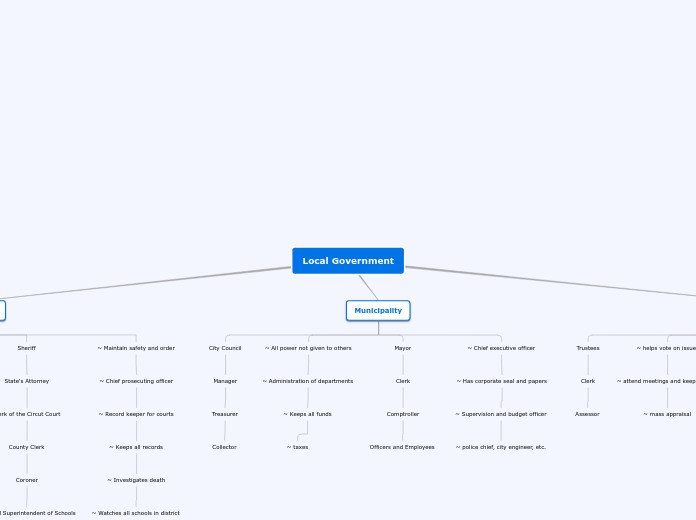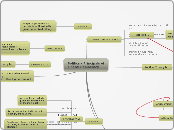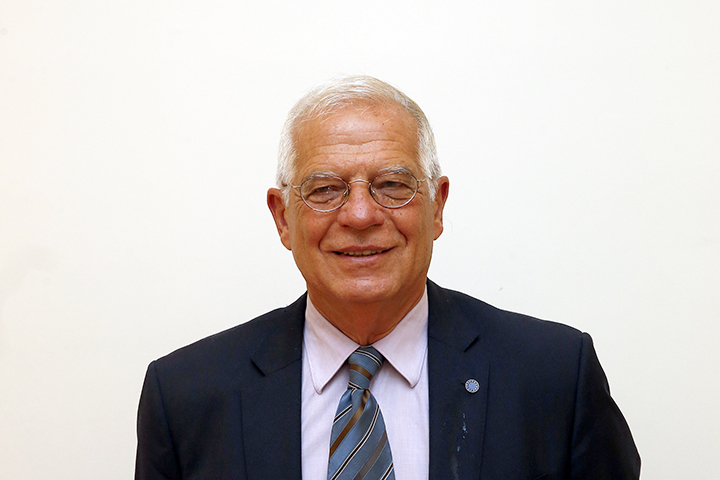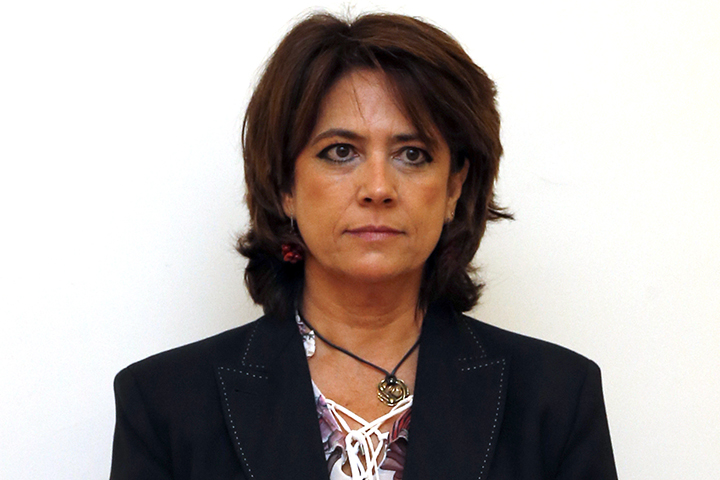MOTION OF NO CONFIDENCE
Section 113
1. The Congress may require political responsibility from the Government by adopting a motion of censure by overall majority of its Members.
2. The motion of censure must be proposed by at least one tenth of the Members of Congress and shall include a candidate for the office of the Presidency of the Government.
Section 114
1. If the Congress withholds its confidence from the Government, the latter shall submit its resignation to the King, whereafter the President of the Government shall be nominated in accordance with the provisions of section 99.
2. If the Congress adopts a motion of censure, the Government shall submit its resignation to the King, and the candidate proposed in the motion of censure shall be deemed to have the confidence of the House for the purposes provided in section 99. The King shall appoint him or her President of the Government.
AUDIENCIAS PROVINCIALES
Juzgados
AYUNTAMIENTO DE ZAMORA
Section 140
The Constitution guarantees the autonomy of municipalities. These shall enjoy full legal entity. Their government and administration shall be vested in their Town Councils, consisting of Mayors and councillors. Councillors shall be elected by residents of the municipality by universal, equal, free, direct and secret suffrage, in the manner provided for by the law. The Mayors shall be elected by the councillors or by the residents. The law shall lay down the terms under which an open council of all residents may proceed.
Alcalde / Mayor
Concejalías / Municipal Councils
Concejalías
- POLICÍA, BOMBEROS, PROTECCIÓN CIUDADANA Y MOVILIDAD
- .
- ATENCIÓN AL CIUDADANO, TURISMO, CEMENTERIO Y COMERCIO.
- RECAUDACIÓN, RENTAS, PADRÓN, SALUD PÚBLICA Y OMIC.
- PERSONAL, SECRETARÍA, INTERVENCIÓN, TESORERÍA Y ASESORÍA JURÍDICA, COOPERACIÓN AL DESARROLLO
- Y BARRIOS.
- DEPORTES.
- EDUCACIÓN, CULTURA Y BIBLIOTECAS.
- URBANISMO, MEDIOAMBIENTE Y OBRAS.
- BIENESTAR SOCIAL.
- TEATRO, ARCHIVO, JUVENTUD Y PATRIMONIO.
-
- HACIENDA, SERVICIOS GENERALES, INFORMÁTICA, CONTRATACIÓN Y GABINETE DE PRENSA.
- IGUALDAD Y OMD
DIPUTACIONES PROVINCIALES
President: Mª Teresa Martín Pozo
Diputados / Delegados
Antón Rodríguez, Jesús Angel
Barrios Tejero, José María
Bermúdez Lorenzo, José Luis
Carrión Gallardo, David
Dúo Torrado, Juan Emilio Joaquín
Escribano Hernández, Maribel
Folgado Becerra, Eduardo
González Cadenas, Leonor
González Cadenas, Leonor
Iglesias Martín, Antonio
Martín Pérez, Manuel
Martín Pérez, Manuel
Nieto Vaquero, José María
Pernía Fernández, José Luis
Plaza Escudero, Antonio María Claret
Prada Barrios, Ángel
Prieto Calderón, José Luis
Ramos Pascual, Manuel
Rivera Carnicero, Laura
Ruiz Rodríguez, José Ángel
Ruiz Rodríguez, José Ángel
Segovia García, Luis
Tomás Fernández, Aurelio Nicolás
Veleda Franganillo, Sandra
Vicente García, David
Rubio Pernía, Pablo
PROVINCIAL POWER (Zamora)
Section 141
1. The province is a local entity, with its own legal entity, arising from the grouping of municipalities, and a territorial division designed to carry out the activities of the State. Any alteration of provincial boundaries must be approved by the Cortes Generales in an organic act.
2. The government and autonomous administration of the provinces shall be entrusted to Provincial Councils (Diputaciones) or other Corporations that must be representative in character.
3. Groups of municipalities other than provinces may be formed.
REGIONAL LEVEL (Estatuto de Autonomía)
Section 143
1. In the exercise of the right to self-government recognised in section 2 of the Constitution, bordering provinces with common historic, cultural and economic characteristics, insular territories and provinces with a historic regional status may accede to self-government and form Self-governing Communities (Comunidades Autónomas) in conformity with the provisions contained in this Part and in the respective Statutes.
TRIBUNAL SUPERIOR DE JUSTICIA DE CyL
Art. 40
1. The Superior Court of Justice of Castilla y León is the highest jurisdictional body of the Administration of Justice within the Community in all orders, with the exception of military jurisdiction, and covers all its territorial scope. Its organization, competencies and functioning will be adjusted to whatever state legislation provides.
President: Jose Luis Concepción
Art.41
1. El Presidente del Tribunal Superior de Justicia de Castilla y León será nombrado por el Rey, a propuesta del Consejo General del Poder Judicial. El Presidente de la Junta de Castilla y León ordenará la publicación de dicho nombramiento en el «Boletín Oficial de Castilla y León».
oncepción
JUNTA DE CASTILLA Y LEON
Art 30. Atributions
1. To exercise the government and administration of the Community within the scope of the powers attributed to it.
2. To file unconstitutionality appeals in the terms established in article 162.1.a) of the Constitution and to provoke, as the case may be, conflicts of competence with the State or another Autonomous Community, as provided for in the Organic Law of the Constitutional Court, stating in the latter by agreement of the Cortes of Castilla y León or on its own initiative.
3. Exercise as many other powers or powers as assigned by this Statute and the laws.
President: Juan Vicente Herrera
Article 26. Election and character.
1. The Chairman of the Board holds the supreme representation of the Community and the ordinary representation of the State in it; also presides over the Junta de Castilla y León, directs its actions and coordinates the functions of its members.
2. The President of the Junta de Castilla y León is elected by the Cortes de Castilla y León from among its members and appointed by the King.
3. At the beginning of each legislature or in case of resignation or death of the previous President, loss of his status as Procurator of the Cortes of Castilla y León, disqualification derived from a final criminal conviction or permanent incapacity recognized by the Courts that disables him for the In the exercise of the office, the Cortes of Castile and Leon shall elect the President by absolute majority on first ballot or by simple majority on the second, in accordance with the procedure established by the Rules of Procedure. If after two months from the first investiture vote no candidate has obtained the confidence of the Cortes de Castilla y León, they will be automatically dissolved and new elections will be called.
4. The President shall cease, in addition to the causes referred to in the preceding paragraph, in cases of loss of confidence or if the Courts of Castile and Leon adopt the motion of censure in the terms referred to in article 36 of this Statute. Article
27. Attributions.
1. As the supreme representative of the Community of Castile and Leon, corresponds to the President of the Board:
a) Convene elections to the Cortes of Castilla y León in accordance with the provisions of this regulation.
b) To agree on the dissolution of the Courts of Castilla y León in the normatively foreseen terms.
c) Maintain the relationships that are considered appropriate with the other public entities.
d) Sign the cooperation and collaboration agreements and agreements signed by the Autonomous Community in the cases where applicable.
e) To propose, on its own initiative or at the request of citizens, in accordance with the provisions of this Statute and the legislation of the State and the Community, the holding of popular consultations within the Community, on political decisions regarding matters that are of the competence of this one.
2. As the ordinary representative of the State in the Autonomous Community, corresponds to the President of the Board:
a) To promulgate in the name of the King the laws approved by the Cortes of Castile and Leon, as well as to order its publication in the "Official Gazette of Castilla y León" and the referral for publication in the "Official State Gazette".
b) Order the publication in the "Official Gazette of Castilla y León" of the appointments of the high officials of the State in Castilla y León. c) Request collaboration from the State authorities that exercise public functions in Castilla y León.
d) The others determined by the laws.
3. As President of the Government of Castilla y León, corresponds to the President of the Board:
a) Direct and coordinate government action.
b) Appointing and freely separating the other members of the Board.
c) Convene presides, set the agenda for meetings of the Governing Council and direct the debates and deliberations, as well as suspend and adjourn the sessions.
d) Sign the Decrees and Agreements of the Board and order, where appropriate, the publication in the "Official Gazette of Castilla y León".
e) Request an opinion from the Consultative Council of Castilla y León in the cases where appropriate.
f) Exercise any other attribution provided by law.
CORTES DE CASTILLA Y LEON
Within the basic attributions of the Courts of Castile and Leon have to stand out three:
- the legislative power,
- the election of the Chairman of the Board.
– control and impulse of government action.
( http://www2.ccyl.es/cms/cortes/funciones/ )
Art. 24
1. The Courts shall make available to the local Parliamentary Groups and sufficient material means and assign them, from their budget, a fixed grant identical for all, without prejudice to the provisions of the following section, and another variable depending on the number of Attorneys of each one of them. The amounts will be set by the Bureau of the Courts within the limits of the budget appropriation.
3. The Parliamentary Groups must keep a specific accounting of the subsidies referred to in this article, which they will make available to the Bureau of the Courts whenever they request it.
All the functions named in the Autonomy Status of Cyl (traduced by myself so hope you enjoy it)
1. To exercise the legislative power of the Community in the terms established by the Constitution, by this Statute and by the laws of the State that attribute such power to them.
2. Control and promote the political and governmental action of the Board and its President.
3. Approve the Budgets of the Community and those of the Courts themselves, as well as the annual accountability of both.
4. Choose from among its members the President of the Junta de Castilla y León.
5. Appoint the Senators who are to represent the Community, as provided in article 69.5 of the Constitution. The Senators will be appointed in proportion to the number of members of the political groups represented in the Cortes of Castilla y León.
6. Request from the Government the adoption of a bill, or refer to the Bureau of the Congress of Deputies a bill in the terms established in Article 87, paragraph 2, of the Constitution.
7. File unconstitutionality appeals, in accordance with what is established in article 162, section 1.a), of the Constitution, and the Organic Law of the Constitutional Court.
8. Exercise the initiative to reform the Constitution, in the terms set forth in it.
9. Provide the Government with the political, social and economic forecasts referred to in article 131, paragraph 2, of the Constitution. 10. Establish and demand taxes in accordance with the Constitution, this Statute and the corresponding laws of the State.
11. To approve transfers of competences of the Community to the municipalities, provinces and other local entities of the same, except for what is determined by the present Statute or establish a previous law of the own Community.
12. Ratify the agreements that the Board concludes with other Autonomous Communities for the management and provision of their own services. Said agreements will be communicated immediately to the Cortes Generales.
13. To ratify the cooperation agreements that on matters other than those mentioned in the previous number concludes the Meeting with other Autonomous Communities with the authorization of the Cortes Generales.
14. Validate the Decrees Laws approved by the Board, in accordance with the provisions of article 25.4 of this Statute.
15. Exercise all other powers, powers and powers assigned to them by the Constitution, this Statute and the laws.
President: Silvia Clemente Municio
Article 35. Question of confidence.
1. The President of the Board of Castile and Leon, after deliberation of the same, may raise before the Cortes of Castilla y León the question of confidence in its program or on a general policy statement
Article 20. Character.
1. The Courts of Castile and Leon represent the people of Castile and Leon and exercise in their name, in accordance with the Constitution and the present Statute, the powers and attributions that correspond to them. 2. The Cortes of Castilla y León are inviolable..
NATIONAL LEVEL
Section 3
1. Castilian is the official Spanish language of the State. All Spaniards have the duty to know it and the right to use it.
2. The other Spanish languages shall also be official in the respective Self-governing Communities in accordance with their Statutes. A social and democratic State under the rule of law National sovereignty Parliamentary monarchy National unity and devolution to nationalities and regions Language. The wealth of the different linguistic forms of Spain is a cultural heritage which shall be especially respected and protected.
Section 4
1. The flag of Spain consists of three horizontal stripes: red, yellow and red, the yellow stripe being twice as wide as each red stripe.
2. The Statutes may recognize flags and ensigns of the Self-governing Communities. These shall be used together with the flag of Spain on their public buildings and in their official ceremonies.
HEAD OF THE STATE: PHILIP VI
Section 62
It is incumbent upon the King:
a) To sanction and promulgate the laws.
b) To summon and dissolve the Cortes Generales and to call for elections under the terms provided for in the Constitution.
c) To call for a referendum in the cases provided for in the Constitution.
d) To propose a candidate for President of the Government and, as the case may be, appoint him or her or remove him or her from office, as provided in the Constitution.
e) To appoint and dismiss members of the Government on the President of the Government’s proposal.
f) To issue the decrees approved in the Council of Ministers, to confer civil and military positions and award honours and distinctions in conformity with the law.
g) To be informed of the affairs of State and, for this purpose, to preside over the meetings of the Council of Ministers whenever he sees fit, at the President of the Government’s request.
h) To exercise supreme command of the Armed Forces.
i) To exercise the right of clemency in accordance with the law, which may not authorize general pardons.
j) To exercise the High Patronage of the Royal Academies.
King:
— Sect. 55 (general provision);
— Sect. 57.4 (power to prohibit marriage of persons entitled to succeed);
— Sect. 58 (power to assume constitutional functions):
— Sect. 59 (Regency): Sect. 60 (guardianship);
— Sect. 61 (constitutional oath); Sect. 62 (functions);
— Sect. 63 (diplomatic and international powers);
— Sect. 64 (countersigning of his acts by Ministers); 110
— Sect. 65 (Appropriation in the Bugget for the Royal Household), see also Civil List;
— Sect. 91 (Royal Assent to and promulgation of Acts);
— Sect. 92 (calling of referendum);
— Sect. 99.1 (receives any proposals for appointment of Prime Minister); Sect. 99.3 (appointment of the candidate having obtained the confidence of Congress):
— Sect. 99.5 (disolution of Houses in case of repeated failure of Congress to invest a new candidate as Prime Minister);
— Sect. 100 (appointment of Ministers):
— Sect. 114 (resignation of the Government):
— Sect. 115.1 (dissolution of both Houses or of one of them):
— Sect. 117.1 (administration of justice on his behalf);
— Sect. 122.3 (appointment of members of General Judiciary council);
— Sect. 124.4 (appointment of the State’s Public Prosecutor);
— Sect. 151.2.4 (Royal Assent to and promulgation of Statutes of Devolution in special case contemplated in said Sect.):
— Sect. 159.1 (appointment of members of Constitutional Court):
— Sect. 160 (appointment of President of the Constitutional Court). King’s Civil list, see Civil List and also Royal Household. King’s Household, see Royal Household. L La Palma (Canary Islands), Sect. 69.3. Labour legislation, Sect. 149.1.7.º
— Labour disputes, see Collective labour disputes. Land use, see Town planning
JUDICIAL POWER
Tribunal Constitucional
Section 159
1. The Constitutional Court shall consist of twelve members appointed by the King. Of these, four shall be nominated by the Congress by a majority of three-fifths of its members, four shall be nominated by the Senate with the same majority, two shall be nominated by the Government, and two by the General Council of the Judicial Power.
Section 164
1. The judgments of the Constitutional Court shall be published in the Official State Gazette (Boletín Oficial del Estado), with the dissenting opinions, if any. They have the force of res judicata from the day following their publication, and no appeal may be brought against them. Those declaring the unconstitutionality of an act or of a statute with the force of an act and all those which are not limited to the acknowledgment of an individual right, shall be fully binding on all persons.
Tribunal Supremo
Section 123
1. The Supreme Court, with jurisdiction over the whole of Spain, is the highest judicial body in all branches of justice, except with regard to provisions concerning constitutional guarantees
President
Section 123
2. The President of the Supreme Court shall be appointed by the King, on the General Council of the Judicial Powers’ proposal in the manner to be laid down by the law.
EXECUTIVE POWER
GOBIERNO
Section 97
The Government shall conduct domestic and foreign policy, civil and military administration and the defence of the State. It exercises executive authority and the power of statutory regulations in accordance with the Constitution and the laws.
Government (see also Council of Ministers):
— Sect. 62 e) (appointment and dismissal by the King);
— Sect. 82.1 and 3 (legislative delegations to...);
— Sect. 84 (right of... to oppose private Members bills or amendments to a bill that are contrary to an existing legislative delegation);
— Sect. 85 (Legislative Decrees);
— Sect. 86 (Decree-Laws);
— Sect. 87 (iniciative of bills);
— Sect. 90.2 (declaration of urgency for a bill);
— Sect. 93 (check on the execution by... of certain international treaties);
— Sect. 95.2 (appeal to Constitutional 105 Court in case of doubt on an international treaty);
— Sect. 97 (functions óf...);
— Sect. 98 (membership);
— Sect. 101 (resignation);
— Sect. 102 (criminal liability of its members);
— Sect. 104 (commands Security Forces and Corps);
— Sect. 108 (jointly responsible to Congress);
— Sect. 109 (duty to inform the Houses and their Committees);
— Sect. 112 (prior deliberation for putting the confidence question to Congress);
— Sect. 113 (motion of censure);
— Sect. 114 (resignation of... if motion of censure adopted or confidence refused);
— Sect. 115.1 (prior deliberation for dissolution of both Houses or one of them);
— Sect. 116.2,3 and 4 (states of alarm, emergency and siege);
— Sect. 116.6 (liability of Government and its officers even during said states);
— Sect. 124.4 (proposal to the King for the appointment of the Public Prosecutor);
— Sect. 131.2 (enactment of economic planning bills);
— Sect. 134.1.3 and 5 (Budget Appropiations Act and bills of budgetary nature);
— Sect. 135.1 (prior authorization by an Act for issuing Public Debt or for borrowing money);
— Sect. 151.2.1º (Intervention in the special procedure for drafting of Statutes of Devolution);
— Sect. 153 b) (power to lodge unconstitutionality appeals);
— Sect. 154 (appointment of a Delegate in every Self-governing Community);
— Sect. 155.1 (intervention in case of non-compliance by Self-governing Community of its constitutional or legal duties);
— Sect. 155.2 (power to give instructions to Self-governing Communities for the implementation of compulsory execution measures). Government’s Delegates in Selfgoverning Communities,
--Sect. 154. Gran Canaria (island of...), --Sect. 69.3. Guarantees of rights and liberties:
— Sect. 24.1 (right to assistance and protection of the courts of law);
— Sect. 24.2 (Judicial guarantees);
— Sect. 53 (general provision);
— Sect. 54 (Defender Of the People);
— Sect. 124.1 (defence of citizens’ right by the Office of the Public Prosecutor);
— Sect. 161.11) (individual appeal for protection to Constitutional Court); Guardian of the King, Sect. 60.
New President of the Goberment: Pedro Sánchez
Section 97
2. The President shall direct the Governments’ action and coordinate the functions of the other members thereof, without prejudice to the competence and direct responsability of the latter in the discharge of their duties
Ministers
Council of Ministers:
— Sect. 62.1.f) (adoption of Decrees).
— Sect. 62.g) (can be presided by the King);
— Sect. 88 (adoption of Government’s bills before sending them to the Cortes);
— Sect. 112 (Deliberation before putting the question of confidence to Congress);
— Sect. 115.1 (deliberation before dissolution of the Cortes or of either Hose);
— Sect. 116.2 (proclamation of the state of alarm);
— Sect. 116.3 (proclamation of the state of emergency).
NEW MINISTERS:

María del Carmen Calvo Poyato
Vicepresidenta y ministra de la Presidencia, Relaciones con las Cortes e Igualdad
Josep Borrell Fontelles
Ex-president of the goberment: Mariano Rajoy
LEGISLATIVE POWER
CORTES GENERALES
Section 66
1. The Cortes Generales represent the Spanish people and shall consist of the Congress and the Senate.
2. The Cortes Generales exercise the legislative power of the State and adopt its Budget, control the action of the Government and have the other competences assigned by the Constitution.
3. The Cortes Generales are inviolable.
Cortes Generales:
— Preamble, last phrase (for adoption of Constitution);
— Sect. 57.3 (succession to the Crown);
— Sect. 57.4 (marriage of persons with a right of succession against the Cortes’ formal prohibition);
— Sect. 59.2 (Regency in case of the King’s incapacity);
— Sect. 62.b) (summoning and dissolution by the King);
— Sect. 63.3 (declaration of war and signature of peace);
— Sect. 66 (definition-functions);
— Sect. 67 (prohibition of member ship of both Houses at the same timeprohibition of binding mandate);
— Sect. 72.2 (Rules of procedure for joint sittings);
— Sect. 74 (joint sitting);
— Sect. 82 (legislative delegations);
— Sect 93 (transfer of constitutional powers by an international treaty);
— Sect. 94 (prior authorisation of... for international commitments by the State);
— Sect. 115.1 (dissolution);
— Sect. 134.1 (adoption of Budget);
— Sect. 136.1 (Control over the Auditing Commission);
— Sect. 144.1 (exceptional initiative for the setting-up of Self-governing Communities);
— Sect. 145.2 (cooperation agreements between Self-governing Communities);
— Sect. 146 (debate on Statutes of Devolution);
— Sect. 147.3 (amendment of Statutes of Devolution);
— Sect. 150.1 (granting of legislative powers to Self-governing Communities); 98
— Sect. 150.3 (Harmonization Acts);
— Sect. 151.2.4.º (special procedure for drafting Statutes of Devolution);
— Sect. 158.2 (Interterritorial Clearing Fund);
— Sect. 167.3 (constitutional amendments generally);
— Sect. 168.1 (dissolution in case of reform of Constitution);
— Sect. 168.3 (adoption of constitutional reform);
Senado
Section 69
1. The Senate is the House of territorial representation.
2. In each province, four Senators shall be elected by the voters thereof by universal, free, equal, direct and secret suffrage, under the terms to be laid down by an organic act
6. The Senate is elected for four years. The Senators’ term of office shall end four years after their election or on the day on which the House is dissolved.
Senate:
— Sect. 66.1 (Upper House of the Cortes Generales);
— Sect. 69 (definition-membershipelections);
— Sect. 74.2 (Joint Conciliation Committee);
— Sect. 76 (Enquiry Committees);
— Sect. 87.1 (power to initiate bills);
— Sect. 90 (legislative powers);
— Sect. 94.2 (right to be immediately informed of the signature of international treaties other than those mentioned in Subs. 1 of same Sect.);
— Sect. 115 (dissolution);
— Sect. 122.3 (right to nominate 4 candidates to the General Judiciary Council);
— Sect. 155.1 (execution by the State of tasks imposed on Selfgoverning Communities in case of non-compliance by these).
— Sect. 159.2 (nomination of 4 candidates to the Constitutional Court);
— Sect. 167 (vote of constitutional amendment bills);
— 8th Transit. Prov. (assumption of senatorial functions by one of the Houses existing at the commencement of Constitution).
President: García Escudero
Congreso de los Diputados
Section 68
1. The Congress shall consist of a minimum of three hundred and a maximum of four hundred Members, elected by universal, free, equal, direct and secret suffrage, under the terms to be laid down by the law.
President: Ana Pastor


























